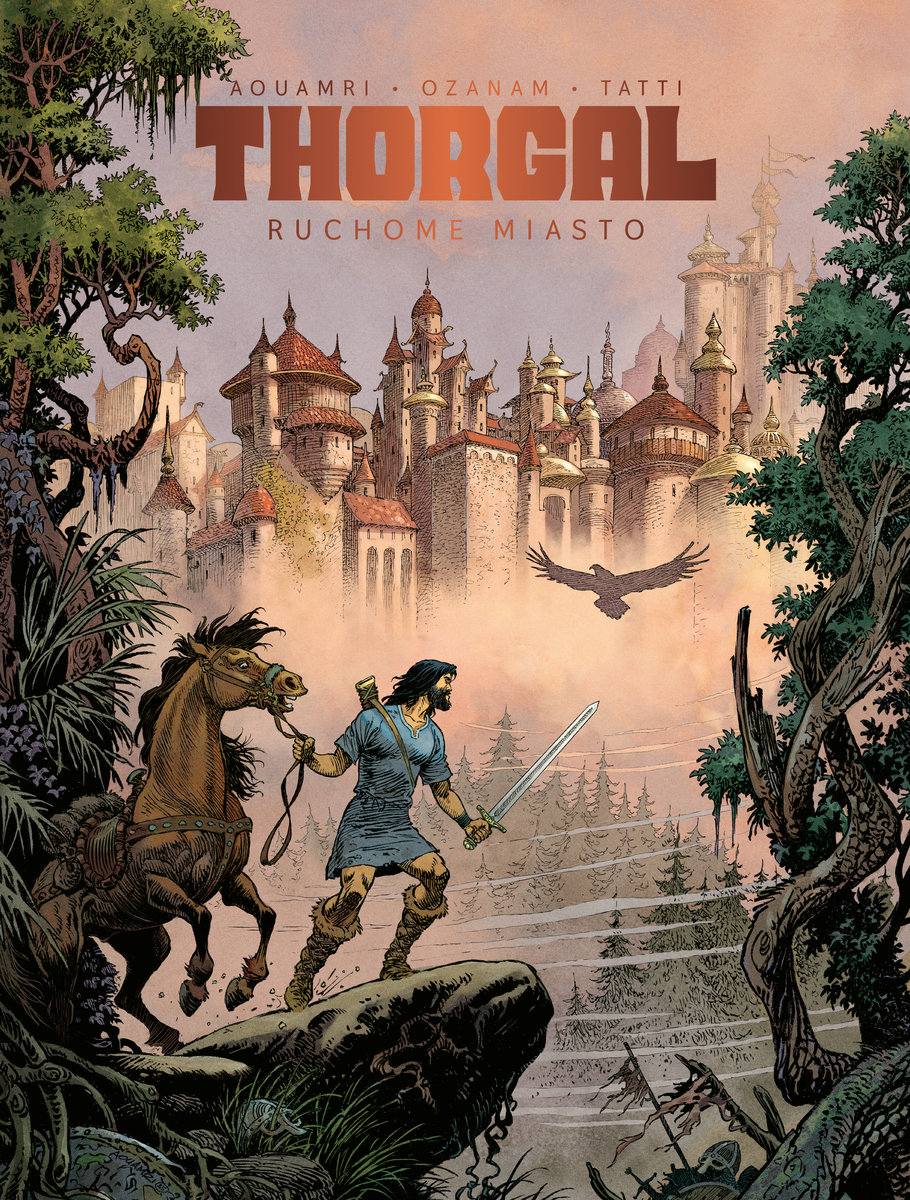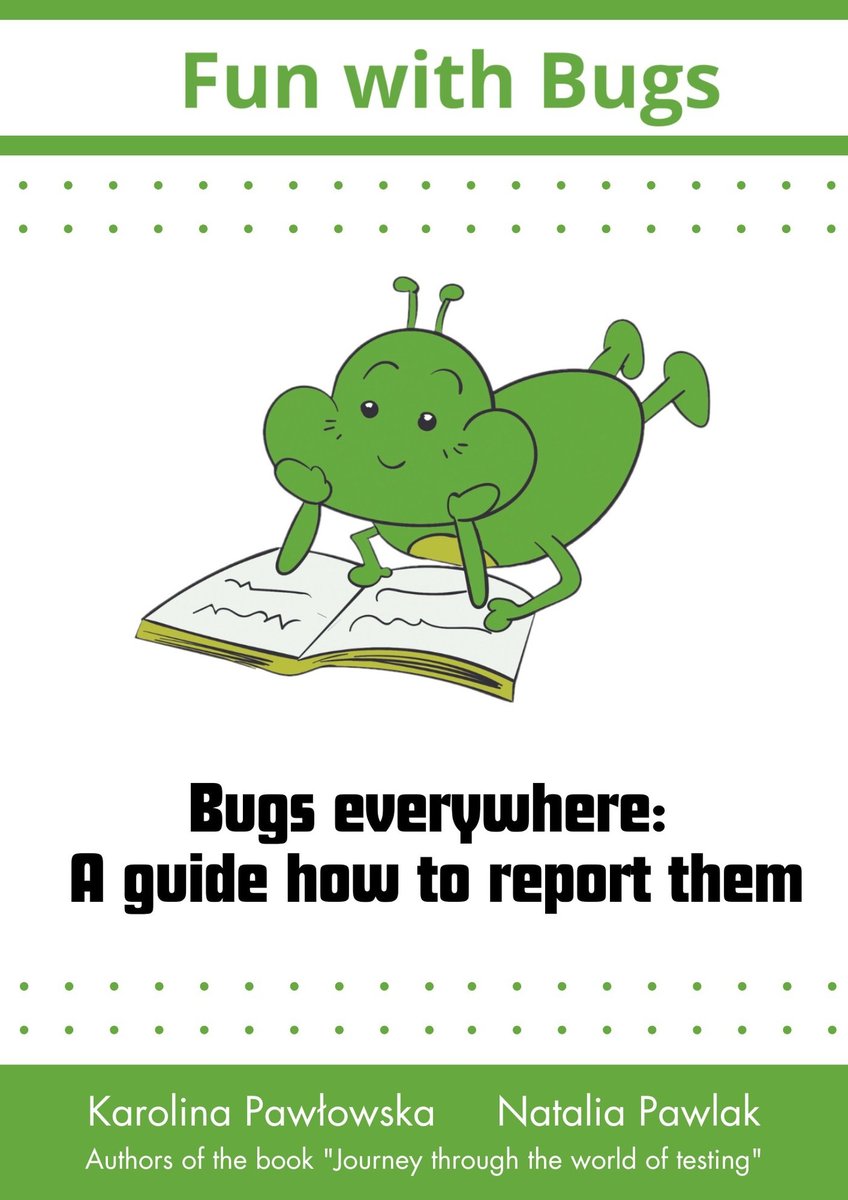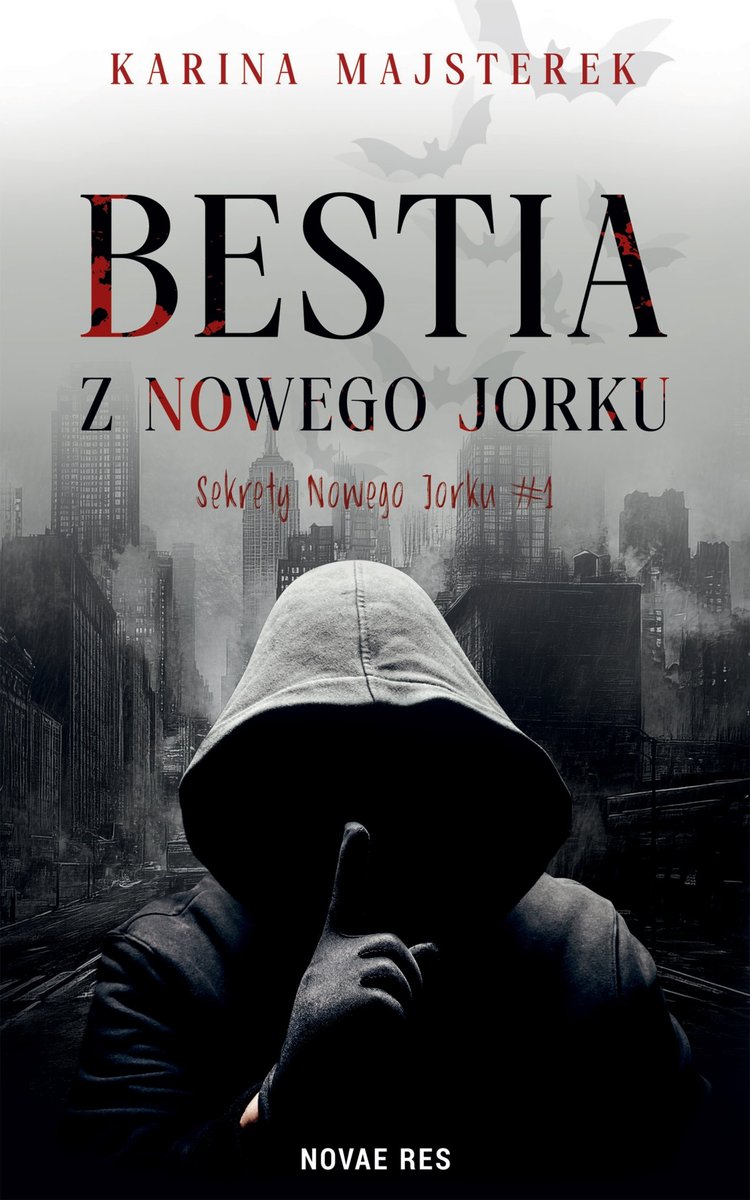Pratchett Terry - Equal Rites
| Szczegóły | |
|---|---|
| Tytuł | Pratchett Terry - Equal Rites |
| Rozszerzenie: | |
Pratchett Terry - Equal Rites PDF - Pobierz:
Pobierz PDF
Pratchett Terry - Equal Rites - podejrzyj 20 pierwszych stron:
Strona 1
TERRY PRATHETT
EQUAL RITES
3rd Discworld Novel
Strona 2
First Publication: 1988
Typesetting using LATEX
Strona 3
Thanks to Neil Gaiman, who loaned us the last
surviving copy of the Liber Paginarum Fulvarum,
and a big hallo to all the kids at the H.P. Lovecraft
Holiday Fun Club.
Strona 4
I would like it to be clearly understood that this book is
not wacky. Only dumb redheads in fifties’ sitcoms are wacky.
No, it’s not zany, either.
Strona 5
This is a story about magic and where it goes and perhaps more importantly
where it comes from and why, although it doesn’t pretend to answer all or any of
these questions.
It may, however, help to explain why Gandalf never got married and why
Merlin was a man. Because this is also a story about sex, although probably
not in the athletic, tumbling, count-the-legs-and-divide-by-two sense unless the
characters get totally beyond the author’s control. They might.
However, it is primarily a story about a world. Here it comes now. Watch
closely, the special effects are quite expensive.
A bass note sounds. It is a deep, vibrating chord that hints that the brass section
may break in at any moment with a fanfare for the cosmos, because the scene is
the blackness of deep space with a few stars glittering like the dandruff on the
shoulders of God.
Then it comes into view overhead, bigger than the biggest, most unpleasantly
armed starcruiser in the imagination of a three-ring film-maker: a turtle, ten thou-
sand miles long. It is Great A’Tuin, one of the rare astrochelonians from a universe
where things are less as they are and more like people imagine them to be, and it
carries on its meteor-pocked shell four giant elephants who bear on their enormous
shoulders the great round wheel of the Discworld.
As the viewpoint swings around, the whole of the world can be seen by the
light of its tiny orbiting sun. There are continents, archipelagos, seas, deserts,
mountain ranges and even a tiny central ice cap. The inhabitants of this place, it
is obvious, won’t have any truck with global theories. Their world, bounded by
an encircling ocean that falls forever into space in one long waterfall, is as round
and flat as a geological pizza, although without the anchovies.
A world like that, which exists only because the gods enjoy a joke, must be a
5
Strona 6
place where magic can survive. And sex too, of course.
He came walking through the thunderstorm and you could tell he was a wizard,
partly because of the long cloak and careen staff but mainly because the raindrops
were stopping several feet from his head, and steaming.
It was good thunderstorm country, up here in the Ramtop Mountains, a country
of jagged peaks, dense forests and little river valleys so deep the daylight had no
sooner reached the bottom than it was time to leave again. Ragged wisps of cloud
clung to the lesser peaks below the mountain trail along which the wizard slithered
and slid. A few slot-eyed goats watched him with mild interest. It doesn’t take a
lot to interest goats.
Sometimes he would stop and throw his heavy staff into the air. It always came
down pointing the same way and the wizard would sigh, pick it up, and continue
his squelchy progress.
The storm walked around the hills on legs of lightning, shouting and grum-
bling.
The wizard disappeared around the bend in the track and the goats went back
to their damp grazing.
Until something else caused them to look up. They stiffened, their eyes widen-
ing, their nostrils flaring.
This was strange, because there was nothing on the path. But the goats still
watched it pass by until it was out of sight.
There was a village tucked in a narrow valley between steep woods. It wasn’t
a large village, and wouldn’t have shown up on a map of the mountains. It barely
showed up on a map of the village.
It was, in fact, one of those places that exist merely so that people can have
come from them. The universe is littered with them: hidden villages, windswept
little towns under wide skies, isolated cabins on chilly mountains, whose only
mark on history is to be the incredibly ordinary place where something extraordi-
nary started to happen. Often there is no more than a little plaque to reveal that,
against all ecological probability, someone very famous was born halfway up a
wall.
Mist curled between the houses as the wizard crossed a narrow bridge over
the swollen stream and made his way to the village smithy, although the two facts
had nothing to do with one another. The mist would have curled anyway: it was
6
Strona 7
experienced mist and had got curling down to a fine art.
The smithy was fairly crowded, of course. A smithy is one place where you
can depend on finding a good fire and someone to talk to. Several villagers were
lounging in the warm shadows but, as the wizard approached, they sat up expec-
tantly and tried to look intelligent, generally with indifferent success.
The smith didn’t feel the need to be quite so subservient. He nodded at the
wizard, but it was a greeting between equals, or at least between equals as far as
the smith was concerned. After all, any halfway competent blacksmith has more
than a nodding acquaintance with magic, or at least likes to think he has.
The wizard bowed. A white cat that had been sleeping by the furnace woke up
and watched him carefully.
”What is the name of this place, sir?” said the wizard.
The blacksmith shrugged.
”Bad Ass,” he said.
”Bad – ?”
”Ass,” repeated the blacksmith, his tone defying anyone to make something of
it.
The wizard considered this.
”A name with a story behind it,” he said at last, ”which were circumstances
otherwise I would be pleased to hear. But I would like to speak to you, smith,
about your son.”
”Which one?” said the smith, and the hangers-on sniggered. The wizard
smiled.
”You have seven sons, do you not? And you yourself were an eighth son?”
The smith’s face stiffened. He turned to the other villagers.
”All right, the rain’s stopping,” he said. ”Piss off, the lot of you. Me and —”
he looked at the wizard with raised eyebrows.
”Drum Billet,” said the wizard.
”Me and Mr. Billet have things to talk about.” He waved his hammer vaguely
and, one after another, craning over their shoulders in case the wizard did anything
interesting, the audience departed.
The smith drew a couple of stools from under a bench. He took a bottle out of
a cupboard by the water tank and poured a couple of very small glasses of clear
liquid.
The two men sat and watched the rain and the mist rolling over the bridge.
Then the smith said: ”I know what son you mean. Old Granny is up with my wife
now. Eighth son of an eighth son, of course. It did cross my mind but I never gave
it much thought, to be honest. Well, well. A wizard in the family, eh?”
”You catch on very quickly,” said Billet. The white cat jumped down from its
perch, sauntered across the floor and vaulted into the wizard’s lap, where it curled
up. His thin fingers stroked it absentmindedly.
7
Strona 8
”Well, well,” said the smith again. ”A wizard in Bad Ass, eh?”
”Possibly, possibly,” said Billet. ”Of course, he’ll have to go to University
first. He may do very well, of course.”
The smith considered the idea from all angles, and decided he liked it a lot. A
thought struck him.
”Hang on,” he said. ”I’m trying to remember what my father told me. A
wizard who knows he’s going to die can sort of pass on his sort of wizardness to
a sort of successor, right?”
”I have never heard it put so succinctly, yes,” said the wizard.
”So you’re going to sort of die?”
”Oh yes.” The cat purred as the fingers tickled it behind the ear.
The smith looked embarrassed. ”When?”
The wizard thought for a moment. ”In about six minutes’ time.”
”Oh.”
”Don’t worry,” said the wizard. ”I’m quite looking forward to it, to tell you
the truth. I’ve heard it’s quite painless.”
The blacksmith considered this. ”Who told you?” he said at last.
The wizard pretended not to hear him. He was watching the bridge, looking
for tell-tale turbulence in the mist.
”Look,” said the smith. ”You’d better tell me how we go about bringing up a
wizard, you see, because there isn’t a wizard in these parts and —”.
”It will all sort itself out,” said Billet pleasantly. ”The magic has guided me to
you and the magic will take care of everything. It usually does. Did I hear a cry?”
The blacksmith looked at the ceiling. Above the splash of the rain he could
make out the sound of a pair of new lungs at full bore.
The wizard smiled. ”Have him brought down here,” he said.
The cat sat up and looked interestedly at the forge’s wide doorway. As the
smith called excitedly up the stairs it jumped down and padded slowly across the
floor, purring like a bandsaw.
A tall white-haired woman appeared at the bottom of the stairs, clutching a
bundle in a blanket. The smith hurried her over to where the wizard sat.
”But —” she began.
”This is very important,” said the smith importantly. ”What do we do now,
sir?”
The wizard held up his staff. It was man-high and nearly as thick as his wrist,
and covered with carvings that seemed to change as the smith looked at them,
exactly as if they didn’t want him to see what they were.
”The child must hold it,” said Drum Billet. The smith nodded, and fumbled in
the blanket until he located a tiny pink hand. He guided it gently to the wood. It
gripped it tightly.
”But —” said the midwife.
8
Strona 9
”It’s all right, Granny, I know what I’m about. She’s a witch, sir, don’t mind
her. Right,” said the smith. ”Now what?”
The wizard was silent.
”What do we don-”the smith began, and stopped. He leaned down to look at
the old wizard’s face. Billet was smiling, but it was anyone’s guess what the joke
was.
The smith pushed the baby back into the arms of the frantic midwife. Then,
as respectfully as possible, he unpried the thin, pale fingers from the staff.
It had a strange, greasy feel, like static electricity. The wood itself was almost
black, but the carvings were slightly lighter, and hurt the eyes if you tried to make
out precisely what they were supposed to be.
”Are you pleased with yourself?” said the midwife.
”Eh? Oh. Yes. As a matter of fact, yes. Why?”
She twitched aside a fold of the blanket. The smith looked down, and swal-
lowed.
”No,” he whispered. ”He said —”
”And what would he know about it?” sneered Granny.
”But he said it would be a son!”
”Doesn’t look like a son to me, laddie.”
The smith flopped down on his stool, his head in his hands.
”What have I done?” he moaned.
”You’ve given the world its first female wizard,” said the midwife. ”Whosa
itsywitsy, den?”
”What?”
”I was talking to the baby.”
The white cat purred and arched its back as if it was rubbing up against the
legs of an old friend. Which was odd, because there was no one there.
”I was foolish,” said a voice in tones no mortal could hear. ”I assumed the
magic would know what it was doing.”
PERHAPS IT DOES.
”If only I could do something. . . ”
THERE IS NO GOING BACK. THERE IS NO GOING BACK, said the deep,
heavy voice like the closing of crypt doors.
The wisp of nothingness that was Drum Billet thought for a while.
”But she’s going to have a lot of problems.”
THAT’S WHAT LIFE IS ALL ABOUT. SO I’M TOLD. I WOULDN’T
KNOW, OF COURSE.
”What about reincarnation?”
Death hesitated.
YOU WOULDN’T LIKE IT, he said. TAKE IT FROM ME.
”I’ve heard that some people do it all the time.”
9
Strona 10
YOU’VE GOT TO BE TRAINED TO IT. YOU’VE GOT TO START OFF
SMALL AND WORK UP. YOU’VE NO IDEA HOW HORRIBLE IT IS TO BE
AN ANT.
”It’s bad?”
YOU WOULDN’T BELIEVE IT. AND WITH YOUR KARMA AN ANT IS
TOO MUCH TO EXPECT.
The baby had been taken back to its mother and the smith sat disconsolately
watching the rain.
Drum Billet scratched the cat behind its ears and thought about his life. It had
been a long one, that was one of the advantages of being a wizard, and he’d done
a lot of things he hadn’t always felt good about. It was about time that....
I HAVEN’T GOT ALL DAY, YOU KNOW, said Death, reproachfully.
The wizard looked down at the cat and realized for the first time how odd it
looked now.
The living often don’t appreciate how complicated the world looks when you
are dead, because while death frees the mind from the straitjacket of three dimen-
sions it also cuts it away from Time, which is only another dimension. So while
the cat that rubbed up against his invisible legs was undoubtedly the same cat that
he had seen a few minutes before, it was also quite clearly a tiny kitten and a fat,
half-blind old moggy and every stage in between. All at once. Since it had started
off small it looked like a white, catshaped carrot, a description that will have to do
until people invent proper four-dimensional adjectives.
Death’s skeletal hand tapped Billet gently on the shoulder.
COME AWAY, MY SON.
”There’s nothing I can do?”
LIFE IS FOR THE LIVING. ANYWAY, YOU’VE GIVEN HER YOUR
STAFF.
”Yes. There is that.”
The midwife’s name was Granny Weatherwax. She was a witch. That was
quite acceptable in the Ramtops, and no one had a bad word to say about witches.
At least, not if he wanted to wake up in the morning the same shape as he went to
bed.
The smith was still staring gloomily at the rain when she came back down the
stairs and clapped a warty hand on his shoulder.
He looked up at her.
”What shall I do, Granny?” he said, unable to keep the pleading out of his
voice.
10
Strona 11
”What have you done with the wizard?”
”I put him out in the fuel store. Was that right?”
”It’ll do for now,” she said briskly. ”And now you must burn the staff.”
They both turned to stare at the heavy staff, which the smith had propped in
the forge’s darkest corner. It almost appeared to be looking back at them.
”But it’s magical,” he whispered.
”Well?”
”Will it burn?”
”Never knew wood that didn’t.”
”It doesn’t seem right!”
Granny Weatherwax swung shut the big doors and turned to him angrily.
”Now you listen to me, Gordo Smith!” she said. ”Female wizards aren’t right
either! It’s the wrong kind of magic for women, is wizard magic, it’s all books and
stars and jommetry. She’d never grasp it. Whoever heard of a female wizard?”
”There’s witches,” said the smith uncertainly. ”And enchantresses too, I’ve
heard.”
”Witches is a different thing altogether,” snapped Granny Weatherwax. ”It’s
magic out of the ground, not out of the sky, and men never could get the hang
of it. As for enchantresses,” she added. ”They’re no better than they should be.
You take it from me, just burn the staff, bury the body and don’t let on it ever
happened.”
Smith nodded reluctantly, crossed over to the forge, and pumped the bellows
until the sparks flew. He went back for the staff.
It wouldn’t move.
”It won’t move!”
Sweat stood out of his brow as he tugged at the wood. It remained unco-
operatively immobile.
”Here, let me try,” said Granny, and reached past him. There was a snap and a
smell of scorched tin.
Smith ran across the forge, whimpering slightly, to where Granny had landed
upside down against the opposite wall.
”Are you all right?”
She opened two eyes like angry diamonds and said, ”I see. That’s the way of
it, is it?”
”The way of what?” said Smith, totally bewildered.
”Help me up, you fool. And fetch me a chopper.”
The tone of her voice suggested that it would be a very good idea not to dis-
obey. Smith rummaged desperately among the junk at the back of the forge until
he found an old double-headed axe.
”Right. Now take off your apron.”
11
Strona 12
”Why? What do you intend to do?” said the smith, who was beginning to lose
his grip on events. Granny gave an exasperated sigh.
”It’s leather, you idiot. I’m going to wrap it around the handle. It’ll not catch
me the same way twice!”
Smith struggled out of the heavy leather apron and handed it to her very gin-
gerly. She wrapped it around the axe and made one or two passes in the air. Then,
a spiderlike figure in the glow of the nearly incandescent furnace, she stalked
across the room and with a grunt of triumph and effort brought the heavy blade
sweeping down right in the center of the staff.
There was a click. There was a noise like a partridge. There was a thud.
There was silence.
Smith reached up very slowly, without moving his head, and touched the axe
blade. It wasn’t on the axe any more. It had buried itself in the door by his head,
taking a tiny nick out of his ear.
Granny stood looking slightly blurred from hitting an absolutely immovable
object, and stared at the stub of wood in her hands.
”Rrrrightttt,” she stuttered: ”Iiiinnn tthhatttt cccasseee —”
”No,” said Smith firmly, rubbing his ear. ”Whatever it is you’re going to sug-
gest, no. Leave it. I’ll pile some stuff around it. No one’ll notice. Leave it. It’s
just a stick.”
”Just a stick?”
”Have you got any better ideas? Ones that won’t take my head off?”
She glared at the staff, which appeared not to notice.
”Not right now,” she admitted. ”But you just give me time —”
”All right, all right. Anyway, I’ve got things to do, wizards to bury, you know
how it is.”
Smith took a spade from beside the back door and hesitated.
”Granny.”
”What?”
”Do you know how wizards like to be buried?”
”Yes! ”
”Well, how?”
Granny Weatherwax paused at the bottom of the stairs.
”Reluctantly.”
Later, night fell gently as the last of the world’s slow light flowed out of the
valley, and a pale, rain-washed moon shone down in a night studded with stars.
And in a shadowy orchard behind the forge there was the occasional clink of a
spade or a muffled curse.
In the cradle upstairs the world’s first female wizard dreamed of nothing much.
The white cat lay half-asleep on its private ledge near the furnace. The only
sound in the warm dark forge was the crackle of the coals as they settled down
12
Strona 13
under the ash.
The staff stood in the corner, where it wanted to be, wrapped in shadows that
were slightly blacker than shadows normally are.
Time passed, which, basically, is its job.
There was a faint tinkle, and a swish of air. After a while the cat sat up and
watched with interest.
Dawn came. Up here in the Ramtops dawn was always impressive, especially
when a storm had cleared the air. The valley occupied by Bad Ass overlooked
a panorama of lesser mountains and foothills, coloured purple and orange in the
early morning light that flowed gently over them (because light travels at a dilatory
pace in the Disc’s vast magical field) and far off the great plains were still a puddle
of shadows. Even further off the sea gave an occasional distant sparkle.
In fact, from here you could see right to the edge of the world.
That wasn’t poetic imagery but plain fact, since the world was quite definitely
flat and was, furthermore, known to be carried through space on the backs of four
elephants that in turn stood on the shell of Great A’Tuin, the Great Sky Turtle.
Back down there in Bad Ass the village is waking up. The smith has just gone
into the forge and found it tidier than it has been for the last hundred years, with
all the tools back in their right places, the floor swept and a new fire laid in the
furnace. He is sitting on the anvil, which has been moved right across the room,
and is watching the staff and is trying to think.
Nothing much happened for seven years, except that one of the apple trees
in the smithy orchard grew perceptibly taller than the others and was frequently
climbed by a small girl with brown hair, a gap in her front teeth, and the sort
of features that promised to become, if not beautiful, then at least attractively
interesting.
She was named Eskarina, for no particular reason other than that her mother
liked the sound of the word, and although Granny Weatherwax kept a careful
watch on her she failed to spot any signs of magic whatsoever. It was true that the
girl spent more time climbing trees and running around shouting than little girls
normally did, but a girl with four older brothers still at home can be excused a lot
of things. In fact, the witch began to relax and started to think the magic had not
taken hold after all.
13
Strona 14
But magic has a habit of lying low, like a rake in the grass.
Winter came round again, and it was a bad one. The clouds hung around
the Ramtops like big fat sheep, filling the gulleys with snow and turning the
forests into silent, gloomy caverns. The high passes were closed and the cara-
vans wouldn’t come again until spring. Bad Ass became a little island of heat and
light.
Over breakfast Esk’s mother said: ”I’m worried about Granny Weatherwax.
She hasn’t been around lately.”
Smith looked at her over his porridge spoon.
”I’m not complaining,” he said. ”She —”
”She’s got a long nose,” said Esk.
Her parents glared at her.
”There’s no call to make that kind of remark,” said her mother sternly.
”But father said she’s always poking her —”
”Eskarina!”
”But he said —”
”I said —”
”Yes, but, he did say that she had —”
Smith reached down and slapped her. It wasn’t very hard, and he regretted
it instantly. The boys got the flat of his hand and occasionally the length of his
belt whenever they deserved it. The trouble with his daughter, though, was not
ordinary naughtiness but the infuriating way she had of relentlessly pursuing the
thread of an argument long after she should have put it down. It always flustered
him.
She burst into tears. Smith stood up, angry and embarrassed at himself, and
stumped off to the forge.
There was a loud crack, and a thud.
They found him out cold on the floor. Afterwards he always maintained that
he’d hit his head on the doorway. Which was odd, because he wasn’t very tall
and there had always been plenty of room before, but he was certain that whatever
happened had nothing to do with the blur of movement from the forge’s darkest
corner.
Somehow the events set the seal on the day. It became a broken crockery day,
a day of people getting under each other’s feet and being peevish. Esk’s mother
dropped a jug that had belonged to her grandmother and a whole box of apples in
the loft turned out to be moldy. In the forge the furnace went sullen and refused to
draw. Jaims, the oldest son, slipped on the packed ice in the road and hurt his arm.
14
Strona 15
The white cat, or possibly one of its descendants, since the cats led a private and
complicated life of their own in the hayloft next to the forge, went and climbed up
the chimney in the scullery and refused to come down. Even the sky pressed in
like an old mattress, and the air felt stuffy, despite the snow.
Frayed nerves and boredom and bad temper made the air hum like thunder-
storm weather.
”Right! That’s it. That’s just about enough!” shouted Esk’s mother. ”Cern,
you and Gulta and Esk can go and see how Granny is and -where’s Esk?”
The two youngest boys looked up from where they were halfheartedly fighting
under the table.
”She went out to the orchard,” said Gulta. ”Again.”
”Go and fetch her in, then, and be off.”
”But it’s cold!”
”It’s going to snow again!”
”It’s only a mile and the road is clear enough and who was so keen to be out
in it when we had the first snowfall? Go on with you, and don’t come back till
you’re in a better temper.”
They found Esk sitting in a fork of the big apple tree. The boys didn’t like
the tree much. For one thing, it was so covered in mistletoe that it looked green
even in midwinter, its fruit was small and went from stomach-twisting sourness to
wasp-filled rottenness overnight, and although it looked easy enough to climb it
had a habit of breaking twigs and dislodging feet at inconvenient moments. Cern
once swore that a branch had twisted just to spill him off. But it tolerated Esk,
who used to go and sit in it if she was annoyed or fed up or just wanted to be by
herself, and the boys sensed that every brother’s right to gently torture his sister
ended at the foot of its trunk. So they threw a snowball at her. It missed.
”We’re going to see old Weatherwax.”
”But you don’t have to come.”
”Because you’ll just slow us down and probably cry anyway.”
Esk looked down at them solemnly. She didn’t cry a lot, it never seemed to
achieve much.
”If you don’t want me to come then I’ll come,” she said. This sort of thing
passes for logic among siblings.
”Oh, we want you to come,” said Gulta quickly.
”Very pleased to hear it,” said Esk, dropping on to the packed snow.
They had a basket containing smoked sausages, preserved eggs and - because
their mother was prudent as well as generous – a large jar of peach preserve that
no one in the family liked very much. She still made it every year when the little
wild peaches were ripe, anyway.
The people of Bad Ass had learned to live with the long winter snows and
the roads out of the village were lined with boards to reduce drifting and, more
15
Strona 16
important, stop travellers from straying. If they lived locally it wouldn’t matter
too much if they did, because an unsung genius on the village council several
generations previously had come up with the idea of carving markers in every
tenth tree in the forest around the village, out to a distance of nearly two miles. It
had taken ages, and re-cutting markers was always a job for any man with spare
time, but in winters where a blizzard could lose a man within yards of his home
many a life had been saved by the pattern of notches found by probing fingers
under the clinging snow.
It was snowing again when they left the road and started up the track where,
in summer, the witch’s house nestled in a riot of raspberry thickets and weird
witch-growth.
”No footprints,” said Cern.
”Except for foxes,” said Gulta. ”They say she can turn herself into a fox. Or
anything. A bird, even. Anything. That’s how she always knows what’s going
on.”
They looked around cautiously. A scruffy crow was indeed watching them
from a distant tree stump.
”They say there’s a whole family over Crack Peak way that can turn them-
selves into wolves,” said Gulta, who wasn’t one to leave a promising subject,
”because one night someone shot a wolf and next day their auntie was limping
with an arrow wound in her leg, and....
”I don’t think people can turn themselves into animals,” said Esk, slowly.
”Oh yes, Miss Clever?”
”Granny is quite big. If she turned herself into a fox what would happen to all
the bits that wouldn’t fit?”
”She’d just magic them away,” said Cern.
”I don’t think magic works like that,” said Esk. ”You can’t just make things
happen, there’s a sort of – like a seesaw thing, if you push one end down, the other
end goes up. . . ” Her voice trailed off.
They gave her a look.
”I can’t see Granny on a seesaw,” said Gulta. Cern giggled.
”No, I mean every time something happens, something else has to happen
too – I think,” said Esk uncertainly, picking her way around a deeper than usual
snowdrift. ”Only in the. . . opposite direction.”
”That’s silly,” said Gulta, ”because, look, you remember when that fair came
last summer and there was a wizard with it and he made all those birds and things
appear out of nothing? I mean it just happened, he just said these words and waved
his hands, and it just happened. There weren’t any seesaws.”
”There was a swing,” said Cern. ”And a thing where you had to throw things
at things to win things.”
”And you didn’t hit anything, Gul.”
16
Strona 17
”Nor did you, you said the things were stuck to the things so you couldn’t
knock them off, you said. . . ”
Their conversation wandered away like a couple of puppies. Esk listened with
half an ear. I know what I mean, she told herself. Magic’s easy, you just find the
place where everything is balanced and push. Anyone could do it. There’s nothing
magical about it. All the funny words and waving the hands is just. . . it’s only
for....
She stopped, surprised at herself. She knew what she meant. The idea was
right up there in the front of her mind. But she didn’t know how to say it in words,
even to herself.
It was a horrible feeling to find things in your head and not know how they
fitted. It....
”Come on, we’ll be all day.”
She shook her head and hurried after her brothers.
The witch’s cottage consisted of so many extensions and lean-tos that it was
difficult to see what the original building had looked like, or even if there had ever
been one. In the summer it was surrounded by dense beds of what Granny loosely
called ”the Herbs” – strange plants, hairy or squat or twining, with curious flowers
or vivid fruits or unpleasantly bulging pods. Only Granny knew what they were
all for, and any woodpigeon hungry enough to attack them generally emerged
giggling to itself and bumping into things (or, sometimes, never emerged at all.
Now everything was deep under the snow. A forlorn windsock flapped against
its pole. Granny didn’t hold with flying but some of her friends still used broom-
sticks.
”It looks deserted,” said Cem.
”No smoke,” said Gulta.
The windows look like eyes, thought Esk, but kept it to herself.
”It’s only Granny’s house,” she said. ”There’s nothing wrong.”
The cottage radiated emptiness. They could feel it. The windows did look like
eyes, black and menacing against the snow. And no one in the Ramtops let their
fire go out in the winter, as a matter of pride.
Esk wanted to say ”Let’s go home,” but she knew that if she did the boys would
run for it. Instead she said, ”Mother says there’s a key on a nail in the privy,” and
that was nearly as bad. Even an ordinary unknown privy held minor terrors like
wasps’ nests, large spiders, mysterious rustling things in the roof and, one very
bad winter, a small hibernating bear that caused acute constipation in the family
until it was persuaded to bed down in the haybam. A witch’s privy could contain
anything.
”I’ll go and look, shall I?” she added.
”If you like,” said Gulta airily, almost successfully concealing his relief.
17
Strona 18
In fact, when she managed to get the door open against the piled snow, it was
neat and clean and contained nothing more sinister than an old almanac, or more
precisely about half an old almanac, carefully hung on a nail. Granny had a philo-
sophical objection to reading, but she’d be the last to say that books, especially
books with nice thin pages, didn’t have their uses.
The key shared a ledge by the door with a chrysalis and the stump of a candle.
Esk took it gingerly, trying not to disturb the chrysalis, and hurried back to the
boys.
It was no use trying the front door. Front doors in Bad Ass were used only by
brides and corpses, and Granny had always avoided becoming either. Around the
back the snow was piled in front of the door and no one had broken the ice on the
water butt.
The light was starting to pour out of the sky by the time they dug through to
the door and managed to persuade the key to turn.
Inside, the big kitchen was dark and chilly and smelled only of snow. It was
always dark, but they were used to seeing a big fire in the wide chimney and
smelling the thick fumes of whatever it was she was boiling up this time, which
sometimes gave you a headache or made you see things.
They wandered around uncertainly, calling, until Esk decided they couldn’t
put off going upstairs any longer. The clonk of the thumb-latch on the door to the
cramped staircase sounded a lot louder than it ought to.
Granny was on the bed, with her arms tightly folded across her chest. The tiny
window had blown open. Fine snow had blown in across the floor and over the
bed.
Esk stared at the patchwork quilt under the old woman, because there were
times when a little detail could expand and fill the whole world. She barely heard
Cern start to cry: she remembered lien father, strangely enough, making the quilt
two winters before when the snow was almost as bad and there wasn’t much to
do in the forge, and how he’d used all kinds of rags that had found their way to
Bad Ass from every part of the world, like silk, dilemma leather, water cotton and
tharga wool and, of course, since he wasn’t much good at sewing either, the result
was a rather strange lumpy thing more like a flat tortoise than a quilt, and her
mother had generously decided to give it to Granny last Hogswatchnight, and....
”Is she dead?” asked Gulta, as if Esk was an expert in these things.
Esk stared up at Granny Weatherwax. The old woman’s face looked thin and
grey. Was that how dead people looked? Shouldn’t her chest be going up and
down?
Gulta pulled himself together.
”We ought to go and get someone and we ought to go now because it will get
dark in a minute,” he said flatly. ”But Cern will stay here.”
His brother looked at him in horror.
18
Strona 19
”What for?” he said.
”Someone has got to stay with dead people,” said Gulta. ”Remember when
old Uncle Derghart died and Father had to go and sit up with all the candles and
things all night? Otherwise something nasty comes and takes your soul off to. . . ”
he ended lamely. ”And then people come back and haunt you.”
Cern opened his mouth to start to cry again. Esk said hurriedly, ”I’ll stay. I
don’t mind. It’s only Granny.”
Gulta looked at her in relief.
”Light some candles or something,” he said. ”I think that’s what you’re sup-
posed to do. And then —”
There was a scratching from the windowsill. A crow had landed, and stood
there blinking suspiciously at them. Gulta shouted and threw his hat at it. It flew
off with a reproachful caw and he shut the window.
”I’ve seen it around here before,” he said. ”I think Granny feeds it. Fed it,” he
corrected himself. ”Anyway, we’ll be back with people, we’ll be hardly any time.
Come on, Ce.”
They clattered down the dark stairs. Esk saw them out of the house and bolted
the door behind them.
The sun was a red ball above the mountains, and there were already a few
early stars out.
She wandered around the dark kitchen until she found a scrap of dip candle
and a tinderbox. After a great deal of effort she managed to light the candle and
stood it on the table, although it didn’t really light the room, it simply peopled
the darkness with shadows. Then she found Granny’s rocking chair by the cold
fireplace, and settled down to wait.
Time passed. Nothing happened.
Then there was a tapping at the window. Esk took up the candle stub and
peered through the thick round panes.
A beady yellow eye blinked back at her.
The candle guttered, and went out.
She stood stock still, hardly breathing. The tapping started again, and then
stopped. There was a short silence, and then the doorlatch rattled.
Something nasty comes, the boys had said.
She felt her way back across the room until she nearly tripped over the rocking
chair, and dragged it back and wedged it as best she could in front of the door. The
latch gave a final clonk and went silent.
Esk waited, listening until the silence roared in her ears. Then something
started to bang against the little window in the scullery, softly but insistently. After
a while it stopped. A moment later it started again in the bedroom above her- a
faint scrabbling noise, a claw kind of noise.
19
Strona 20
Esk felt that bravery was called for, but on a night like this bravery lasted only
as long as a candle stayed alight. She felt her way back across the dark kitchen,
eyes tightly shut, until she reached the door.
There was a thump from the fireplace as a big lump of soot fell down, and
when she heard the desperate scratchings coming from the chimney she slipped
the bolts, threw open the door and darted out into the night.
The cold struck like a knife. Frost had put a crust on the snow. She didn’t
care where she was going, but quiet terror gave her a burning determination to get
there as fast as she could.
Inside the cottage the crow landed heavily in the fireplace, surrounded by soot
and muttering irritably to itself. It hopped into the shadows, and a moment later
there was the bang of the latch of the stairway door and the sound of fluttering on
the stairs.
Esk reached up as high as she could and felt around the tree for the marker.
This time she was lucky, but the pattern of dots and grooves told her she was over
a mile from the village and had been running in the wrong direction.
There was a cheese-rind moon and a sprinkling of stars, small and bright and
pitiless. The forest around her was a pattern of black shadows and pale snow and,
she was aware, not all the shadows were standing still.
Everyone knew there were wolves in the mountains, because on some nights
their howls echoed down from the high Tops, but they seldom came near the vil-
lage – the modern wolves were the offspring of ancestors that had survived be-
cause they had learned that human meat had sharp edges.
But the weather was hard, and this pack was hungry enough to forget all about
natural selection.
Esk remembered what all the children were told. Climb a tree. Light a fire.
When all else fails, find a stick and at least hurt them. Never try to outrun them.
The tree behind her was a beech, smooth and unclimbable.
Esk watched a long shadow detach itself from a pool of darkness in front of
her, and move a little closer. She knelt down, tired, frightened, unable to think,
20










